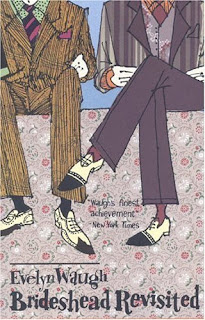Synopsis:
From the moment that Madame de la Rougierre is hired as governess to the young, naive Maud Ruthyn, a dark cloud of foreboding hangs over the entire household. A liar, a bully and a spy, Madame eventually leaves, taking her dark secret with her. But, unhappily for Maud, that is not the last of Madame de la Rougierre. For when Maud is orphaned she is sent to live with her mysterious Uncle Silas, a man with a scandalous- even murderous- past, and encounters Madame once more. This time her sinister role in Maud's destiny will become all to clear. With its world of spirits, locked cabinets, kidnapping and past secrets that spill into the present, Le Fanu's shocking novel of sensation is a chilling and groundbreaking psychological thriller.
My Review:
I'm torn how to rate Uncle Silas. I give it an A for atmosphere and writing but a B-/C+ for plot. Right from the beginning of Uncle Silas, the reader knows that the are reading a classic Gothic novel. The young protagonist, Maud, is naive and isolated from the world. She lives relatively alone, with only her distant father and a few servants. In order to remedy Maud's education, her father hires a governess, who turns out to be cruel and mad.
Shortly after convincing her father to fire Madame de la Rougierre, the governess, Maud's father dies. Maud then has to follow her father's last instructions, which include communicating with a seemingly-creepy man, and then following the instructions in his will. Maud's father instructs that Maud is to be under the care of his brother, Silas. Silas is a reclusive man with a rumored past... rumors which include murder.
It's during this time when the plot seems to falter. The middle of the book had very little action, and what did happen didn't really seem to build up to the conclusion at all. It may have let the suspense build up since the reader knows something bad will happen but doesn't know what or who will be the cause of it. Uncle Silas is full of seedy characters- some who turn out good and others not so good.
The conclusion is excellent. Most of the loose threads are tied up and the reader can finally breathe easily.
I recommend this book for those who like classic books with mystery and gothic aspects but also the patience to read through some tedious passages.
P.S. Isn't the picture on the cover creepy??! I did not like it sitting on my bedside table when I went to bed... it's too scary.
My Rating: 3.5-4 out of 5 stars





